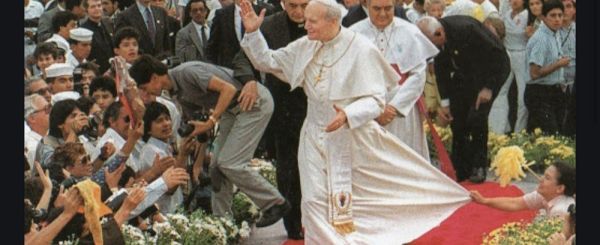2. The present-day mentality, more perhaps than that of people in the past, seems opposed to a God of mercy, and in fact tends to exclude from life and to remove from the human heart the very idea of mercy. The word and the concept of "mercy" seem to cause uneasiness in man, who, thanks to the enormous development of science and technology, never before known in history, has become the master of the earth and has subdued and dominated.
15. Let us offer up our petitions, directed by the faith, by the hope, and by the charity which Christ has planted in our hearts. This attitude is likewise love of God, whom modern man has sometimes separated far from himself, made extraneous to himself, proclaiming in various ways that God is "superfluous." This is, therefore, love of God, the insulting rejection of whom by modern man we feel profoundly, and we are ready to cry out with Christ on the cross: "Father, forgive them; for they know not what they do."137 At the same time it is love of people, of all men and women without any exception or division: without difference of race, culture, language, or world outlook, without distinction between friends and enemies. This is love for people-it desires every true good for each individual and for every human community, every family, every nation, every social group, for young people, adults, parents, the elderly-a love for everyone, without exception. This is love, or rather an anxious solicitude to ensure for each individual every true good and to remove and drive away every sort of evil.
[Pope John Paul II, Dives in Misericordia]












